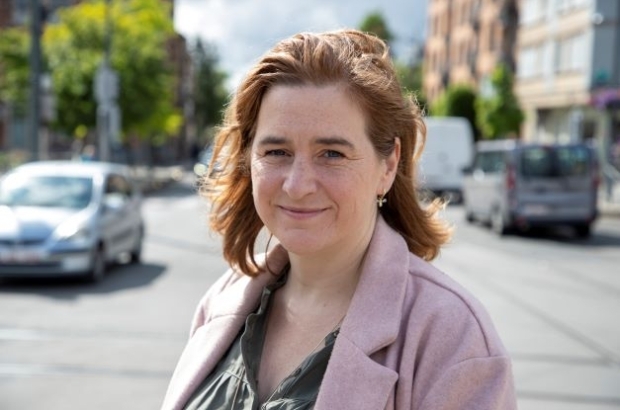- Daily & Weekly newsletters
- Buy & download The Bulletin
- Comment on our articles
Groen pulls out of negotiations to form Brussels government
The Dutch-speaking Groen party has pulled out of negotiations to form Brussels’ next government over French-speaking parties’ "last-minute" decision to table an ordinance postponing the implementation of stricter low-emissions zone standards, outgoing formateur Elke Van den Brandt and Groen co-president Nadia Naji announced.
“With this modus operandi of the MR party, we can no longer work,” Van den Brandt and Naji said.
“The MR, PS and Les Engagés parties have deliberately put a bomb under the Brussels government formation and today that bomb has exploded and the MR has terminated its cooperation with Groen via Twitter politics.”
The decision means Van den Brandt will no longer look for coalition partners for a majority on the Dutch-speaking side.
The formation of a new government for Brussels was already going poorly, but the surprise proposal to postpone new LEZ restrictions for two years threw a wrench in the works.
Prior to Van den Brandt’s announcement, MR chairman Georges-Louis Bouchez wrote on social media that “Van den Brandt cannot hold Brussels hostage… If this blockage continues, MR will also put an end to Good Move via parliament,” which proved to be the final straw.
“Yesterday it was about the low-emission zone, today it's about Good Move and the liveability of our Brussels,” Van den Brandt said.
“Tomorrow it's about the 30 zone or climate policy: we don't know where it ends. We won't go along with that. If we extend our hand as we have done, it will be bitten. We can't work that way, and we won't.”
As Naji put it: “Bouchez is once again acting like an arsonist. The fire was not put out, only extra oil was thrown on. I am looking very hard to see which coalition Bouchez will make to have a majority, because in Brussels you cannot make a government without a majority in both language groups.”
The distribution of political forces on the Dutch-speaking spectrum makes it impossible to do without both Groen (four seats) and Team Fouad Ahidar (three seats), unless Vlaams Belang (two seats) is involved.
Parties Vooruit, Open VLD, N-VA (each with two seats) and CD&V together only have 7 seats. A majority of nine seats is needed in the Dutch-speaking group (17 seats). Several other parties already vetoed a coalition with Ahidar, who nevertheless said he was willing to take over the negotiation – even with an admitted lack of familiarity with certain aspects, such as budgeting.
“We are ready to take over the role of formateur,” Fouad Ahidar told Bruzz in a first reaction to Van den Brandt and co-chair Nadia Naji's announcement. “I don't know much about the budget myself, but we have brought in a specialist who knows all about it. We are ready.”
Ahidar also denounced the MR party’s attitude, describing it as akin to “putting a knife in the back of Groen, when they should just talk. Now they are wiping their feet on democracy.”
Ahidar noted that they also submitted a text to postpone the tightening of the LEZ, but disagreed with the way in which MR was going about the same objective.
In the meantime, the issue of postponing the stricter standards remains a divisive one: proponents of public health are appalled that it is being suggested, but Joost Kaesemans of mobility organisation Touring said that the tightening of the LEZ zone in Brussels should indeed be reconsidered.
“An introduction of an LEZ is a balance between an economic cost and an ecological gain and that balance is lost today,” Kaesemans told Bruzz.
“LEZ zones have certainly had their effect but we know that each new tightening has less and less effect. We think it is important to send the signal to politicians that a lot of people are in the impossibility of switching to a very recent or new electric car.”
According to Kaesemans, many Brussels residents are frustrated.
“Mobility is more than going from point A to point B, it's about how you organise your life,” Kaesemans said.
“But today there is frustration because on the one hand things are made impossible but on the other hand no additional opportunities are created. We know that air quality in our cities today is better than ever and continues to improve even without an LEZ.
"Being able to tighten an LEZ would have been nicer and better but it is not economically feasible."
Brussels has some of the worst air pollution of all European capitals. Live updates on IQAir showed PM2.5 concentrations three times the WHO annual air quality guideline value on Monday.



















